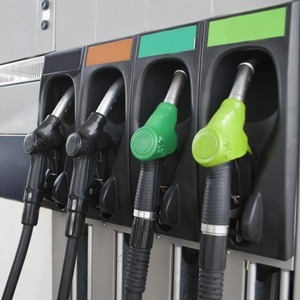UK: New labels to identify ethanol, biodiesel content of fuel

March 7, 2019
BY Erin Krueger
The U.S. Department for Transport recently announced new labeling requirements that aim to help motorists identify the correct fuel for their needs while informing them of the biofuel content of both gasoline and diesel.
The new labeling requirements are related to the U.K. government’s recent public consultation on the potential introduction of E10. The consultation was open from July 20 through September 16. On Feb. 27 the government published its response to the fuel pump labeling aspects of the consultation. A further response considering the E10 and consumer protection aspects of the consultation is expected to be published later this year.
Advertisement
According to the U.K. Department for Transport, all filling stations in the country will be required to use the new labels starting in September. The label are designed to help motorists pick the right fuel while informing them of the biofuel content of gasoline and diesel.
Gasoline that contains up to 5 percent ethanol will be labeled “E5,” while diesel that contains up to 7 percent biodiesel will be labeled as “B7.” The labels will appear on fuel pump and on the filler caps of all new vehicles.
Advertisement
The department also said the labels will be accompanied by a wider public information campaign later this year.
Additional information is available on the U.K. Department for Transport website.
Related Stories
NREL announced the findings of the Assessment of BQ-9000 Biodiesel Properties for 2024, the eighth in a series of annual reports documenting the quality of biodiesel from U.S. and Canadian producers participating in the BQ-9000 program.
Kintetsu World Express Inc. has entered into a new agreement with Shell Aviation regarding the use of SAF. Under this agreement, KWE will adopt Shell Aviation's digital platform "Avelia" to swiftly address shippers' low-carbon transportation needs.
Aemetis Inc. released Q2 results, reporting increase revenue when compared to Q1. During an earnings call, company officials detailed progress with the company’s RNG, ethanol, biodiesel, SAF and carbon CCS projects.
Calumet Inc. on Aug. 8 confirmed its Montana Renewables biorefinery is currently running at full capacity. An initial phase of the company’s MaxSAF initiative remains on track to boost SAF capacity to up to 150 MMgy by mid-2026.
Marathon Petroleum Corp. on Aug. 5 released second quarter financial results, reporting improved EBITDA for its renewable diesel segment. The company primarily attributed the improvement to increased utilization and higher margins.
Upcoming Events










